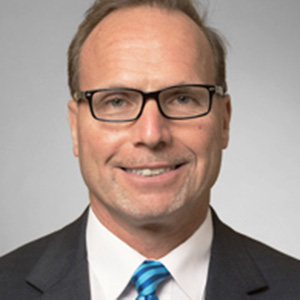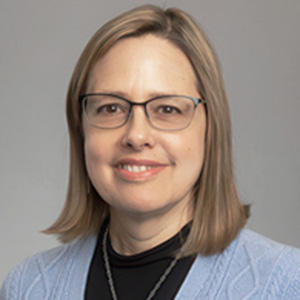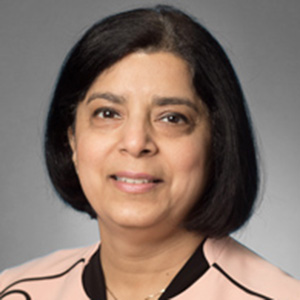Earn Your Nationally Ranked B.S. in Health Sciences with the Flexibility of a Hybrid Program
The Rutgers School of Health Professions Bachelor of Health Sciences is designed for those who have an interest in becoming a healthcare professional or are already a member of the healthcare team. It provides a strong foundation in health science courses which will allow the future graduate to advance professionally towards physical therapy, occupational therapy, clinical nutrition, or advance in their chosen field.
Why Study Health Sciences at SHP?
Rutgers is a top-ranked institution providing students with access to high quality research and exposure to a variety of healthcare professions to promote team-based care. Health Sciences at SHP offers hybrid classes, patient care simulations, and student operated patient clinics offering unique and valuable interactions with the community. Additionally, the School of Health Professions’ Bachelor of Science in Health Sciences Degree Completion Program offers enrollment in a university ranked #1 out of 582 schools in the nation in Best Colleges for Health Professions by College Factual.
A degree in Health Sciences provides a foundational education for future graduate studies in physical therapy, occupational therapy, nutrition and other rewarding fields such as healthcare operations and leadership, gerontology, clinical research management, and health education. According to the U.S. Bureau of Labor Statistics (BLS), employment in healthcare occupations is expected to grow significantly, with around 1.9 million new openings annually through 2033. These fields offer both high demand and competitive wages.
$70,000
Average salary of a B.S. in Health Sciences graduate.
*U.S. Department of Labor Statistics
Program Highlights
The Bachelor of Science in Health Sciences Degree Completion Program offers enrollment in a university ranked #1 out of 582 schools in the nation in Best Colleges for Health Professions by College Factual.
-
- Exposure to career options in health care by preparing students for admission into professional educational programs
- Education on the team approach to treatment and inter-professional collaborative practice.
- Hybrid program with full-time and part-time options
- Faculty with content expertise and real-world experience
- Access to high quality courses from across the University
- Small school attention with the benefits offered by a large institution
- Preferential consideration for SHP graduate programs
- Dual admission option into the Graduate Certificate in Applied Gerontology or the M.S. in Clinical Research Management
Program Overview
Our B.S. in Health Sciences program offers an opportunity to create pathways from an undergraduate curriculum into our graduate programs. Students will be able to choose between a Pre-Physical Therapy, Pre-Occupational Therapy, Pre-Nutrition curriculum, or a customized track catering to health professionals who desire advanced healthcare operations and leadership courses while completing their BS degree. Students will be introduced to health professions, health systems, ethical decision making, pathophysiology, and interprofessional practice competencies, as well as more specific discipline related courses. Additionally, there will be opportunities to observe and participate in mock interprofessional collaborative practice events, high fidelity simulation, and student run clinics.
The customized track is an option for established healthcare professionals with an associate degree, an associate of applied science or 60 undergraduate credits, to earn a bachelor’s degree. Paramedics, Respiratory Therapists, Sonographers and others, will find courses in healthcare operations, leadership, gerontology, and informatics to be extremely beneficial for career advancement. Students can create their own curriculum by choosing to take select undergraduate courses as well as first year graduate courses (course #’s at the 5000 level).
This track offers a dual enrollment option into either the Graduate Certificate in Applied Gerontology or the MS in Clinical Research Management (MSCRM). Choosing the dual enrollment into the MSCRM will reduce the time and cost of earning the graduate degree.
Four Tracks:
- Pre-Physical Therapy (PT) Track
- Pre-Occupational Therapy (OT) Track
- Pre-Nutrition Track
- Customized Track for Degree Completion
Program Goals
The BSHS will:
- Provide exposure to the roles and responsibilities of healthcare professionals.
- Provide the opportunity to develop professional behaviors such as cultural sensitivity, ethics, respect, compassion, and altruism.
- Promote collaboration with future health care team members and other stakeholders to facilitate the attainment of common goals.
- Utilize teaching methods to promote scientific inquiry and dissemination of findings.
- Promote application of basic scientific concepts to the development of patient care plans for each of the highlighted professions.
- Prepare students for graduate education in a healthcare field.
Student Learning Outcomes
- Discuss the structure and function of healthcare delivery in the US (Health systems/organizations)
- Compare and contrast proposed solutions to address challenges in the delivery of care to diverse populations (Health systems/organizations)
- Compare and contrast factors which may undermine the quality of care provided by healthcare organizations and strategies which can be used to address such issues. (Health systems/organizations)
- Apply concepts related to effective financial management of healthcare organizations to help ensure their long-term viability (Health systems/organizations)
- Identify the roles and responsibilities of different healthcare professionals (IPE)
- Explain Interprofessional Education Collaborative (IPEC) competencies (IPE)
- Describe commonly seen diseases in preparation for a future career as a healthcare provider (Clinical)
- Utilize tools and knowledge from biology, neuroscience, engineering, and computer science to understand biomechanics and its application to improving physical health and wellness (Clinical)
- Explain Digestion, absorption, and metabolism of protein, carbohydrates, fat, vitamins and minerals and their contribution to maintaining health (Clinical)
- Create an interdisciplinary patient plan for treatment (Clinical)
- Identify laboratory and test results indicating a need for necessary precautions and contraindications to therapy (Clinical)
- Examine how data structures and systems protect privacy as it pertains to electronic health records. (Legal)
- Analyze legal, ethical, and policy issues that affect the delivery of health care in the U.S. (Legal)
- Interpret privacy rules governing research and personal health data (Legal)
- Analyze and interpret research in health sciences and explain how the new knowledge may influence clinical practice (Research)
- Explain the flow of healthcare data from collection, interpretation, to dissemination (Research)
For more information, contact the Department of Interdisciplinary Studies, Bachelors Program in Health Sciences at 908-889-2434.
Accreditation
Rutgers is accredited by the Middle States Commission on Higher Education (MSCHE), a voluntary, nongovernmental, peer-based membership association dedicated to promoting standards of excellence and improvement in higher education..
Admission Criteria
Application deadline is June 15 for Fall Admission
Students may be offered conditional acceptance with the understanding that any outstanding pre-requisites should be completed prior to enrollment in SHP. Under certain circumstances students can complete the pre-requisites concurrently with the pre-professional phase of the program.
General Requirements
- Minimum of 60 credits of general education and pre-requisite courses
- Minimum GPA 3.0
- Official transcripts from all academic institutions attended
- In a maximum of 500 words, please tell us your educational and career goals. We are especially interested to learn why you have chosen the Bachelor of Science in Health Sciences, and why you believe you are a good fit for this program. The essay is completed as part of the online application.
- Completed application.
Questions?
Contact the Office of Admissions: at 973-972-5454 .
SHP Tuition and Fees
For Tuition and Fees, please see the Undergraduate Tuition and Fees.
(See the Rutgers School of Health Professions Cost of Attendance.)
For Financial Aid information, please visit https://scarlethub.rutgers.edu/financial-services/information-for/rbhs-students/
Requirements & Curriculum
In addition to track specific pre-requisites, students must also adhere to the SHP General Education Pre-requisites to comply with the State Department of Education requirements for a Bachelors Degree. See SHP Electives.
Pre-Physical Therapy (PT) Track
Requirements
Anatomy & Physiology 1 and 2 * (lab must be in person)
General Biology 1 & 2 (lab must be in person)
General Chemistry 1 & 2 (lab must be in person)
General Physics 1 & 2 (lab must be in person)
Social Behavioral Sciences (6 credits)
Statistics (may be taken at SHP)
*May be taken as part of the BSHS.
Curriculum
| Fall 1 | Spring 1 |
|---|---|
| BINF 3010–Medical Terminology (3) | COM 101-H–Communication and Human Behavior (3) |
| IDST 3201 Anatomy & Physiology I (4) | IDST 3202–Anatomy & Physiology II (4) |
| IDST 3510–Principles of Scientific Inquiry (3) | IDST 3500–Fundamental Statistics in Health Sciences (3) |
| IDST 4115–Healthcare Organizations and Inter-professional Practice (3) | IDST 4000–Introduction to Biomechanics (2) |
| IDST 4650–Quality Management in Healthcare (3) | IDST 4550–Management and Leadership in Health Professions (3) |
| 16 Credits | 15 Credits |
| Fall 2 | Spring 2 |
|---|---|
| IDST 4800–Pathophysiology (3) | NUTR 3710–Introduction to Nutrition (3) |
| IDST 4700–Introduction to Gerontology (3) | IDST 4900–Disability Informed Care: Policy and Practices (3) |
| BINF 5000–Essentials of Informatics (3) | IDST 5110–Health Services Issues and Trends (3) |
| Elective (3) | IDST 5900–Scholarly and Technical Writing (3) |
| Elective (3) | IDST 4350–Law and Ethics for Healthcare Providers (3) |
| 15 Credits | 15 Credits |
| Total Credits: 61 |
***Note: The PT and OT tracks have the same SHP required courses but due to differences in admissions criteria, required pre-requisites will vary between tracks.
Pre-Occupational Therapy (OT) Track
Requirements
Anatomy & Physiology 1 and 2 (lab must be in person) *
General Psychology
Developmental Psychology **
Abnormal Psychology Sciences **
Statistics (may be taken at SHP)
* May be taken as part of the BSHS.
**May be taken concurrently while enrolled in the BSHS.
Curriculum
| Fall 1 | Spring 1 |
|---|---|
| BINF 3010–Medical Terminology (3) | COM 101-H–Communication and Human Behavior (3) |
| IDST 3201 Anatomy & Physiology I (4) | IDST 3202–Anatomy & Physiology II (4) |
| IDST 3510–Principles of Scientific Inquiry (3) | IDST 3500–Fundamental Statistics in Health Sciences (3) |
| IDST 4115–Healthcare Organizations and Inter-professional Practice (3) | IDST 4000–Introduction to Biomechanics (2) |
| IDST 4650–Quality Management in Healthcare (3) | IDST 4550–Management and Leadership in Health Professions (3) |
| 16 Credits | 15 Credits |
| Fall 2 | Spring 2 |
|---|---|
| IDST 4800–Pathophysiology (3) | NUTR 3710–Introduction to Nutrition (3) |
| IDST 4700–Introduction to Gerontology (3) | IDST 4900–Disability Informed Care: Policy and Practices (3) |
| BINF 5000–Essentials of Informatics (3) | IDST 5110–Health Services Issues and Trends (3) |
| Elective (3) | IDST 5900–Scholarly and Technical Writing (3) |
| Elective (3) | IDST 4350–Law and Ethics for Healthcare Providers (3) |
| 15 Credits | 15 Credits |
| Total Credits: 61 |
***Note: The PT and OT tracks have the same SHP required courses but due to differences in admissions criteria, required pre-requisites will vary between tracks.
Pre-Nutrition Track
Requirements
Anatomy & Physiology 1 and 2 (May be taken as part of the BSHS)
General Chemistry 1 & 2 **
Microbiology **
Biochemistry **
** with or without labs
Anatomy and Physiology I and II and Medical Terminology may be completed while enrolled in the BSHS.
Although General Biology 1 and 2 are not required as prerequisite courses for the pre-nutrition track in the BSHS, some colleges may require General Biology 1 and 2 as prerequisites for Microbiology and Biochemistry.
Curriculum
| Fall 1 | Spring 1 |
|---|---|
| BINF 3010–Medical Terminology (3) | IDST 3202–Anatomy & Physiology II (4) |
| IDST 3201–Anatomy & Physiology I (4) | IDST 3500–Fundamental Statistics in Health Sciences (3) |
| IDST 3510–Principles of Scientific Inquiry (3) | NUTR 3710–Introduction to Nutrition (3) |
| IDST 4115–Healthcare Organizations and Inter-professional Practice (3) | IDST 4550–Management and Leadership in Health Professions (3) |
| NUTR 3610–Nutritional Aspects of Organic Chemistry (3) | Elective (3) |
| 16 Credits | 16 Credits |
| Fall 2 | Spring 2 |
|---|---|
| NUTR 3720–Principles of Nutrition & Metabolism (4) | NUTR 3100–Experimental Foods (3) |
| IDST 4650–Quality Management in Healthcare (3) | IDST 4900–Disability Informed Care: Policy and Practices (3) |
| IDST 4800–Pathophysiology (3) | IDST 5110–Health Services issues and Trends (3) |
| BINF 5000–Essentials of Informatics (3) | IDST 5900–Scholarly and Technical Writing (3) |
| Elective (3) | Elective (3) |
| 16 Credits | 15 Credits |
| Total Credits: 61 |
Degree Completion Track
Requirements
A.S. or A.A.S. degree in a health profession or approximately 60 Undergraduate credits
Curriculum
| Fall 1 | Spring 1 |
|---|---|
| IDST 3510–Principles of Scientific Inquiry (3) | IDST 3500–Statistics (3) |
| IDST 4115–Healthcare Organizations and Inter-professional Practice (3) | NUTR 3710–Introduction to Nutrition (3) |
| Elective (3) | IDST 4550–Management and Leadership in Health Professions (3) |
| Elective (3) | Elective (3) |
| Elective (3) | Elective (3) |
| 15 Credits | 15 Credits |
| Fall 2 | Spring 2 |
|---|---|
| IDST 4650–Quality Management in Healthcare (3) | IDST 4900–Disability Informed Care: Policy and Practicess (3) |
| IDST 4800–Pathophysiology (3) | IDST 5110–Health Services issues and Trends (3) |
| BINF 5000–Essentials of Informatics (3) | Elective (3) |
| Elective (3) | Elective (3) |
| Elective (3) | Elective (3) |
| 15 Credits | 15 Credits |
| Total Credits: 60 |
Students in the customized track may elect to pursue a dual enrollment option in either the Graduate Certificate in Applied Gerontology or the M.S. in Clinical Research Management . Selected graduate-level coursework may be applied toward the requirements of both the BS and MS degrees.
To be eligible, students must complete one of the introductory graduate courses during Fall I of the BSHS program, Introduction to Gerontology or Regulatory and Ethical Requirements in Clinical Research, earning a grade of “B” or higher and maintaining a cumulative GPA of at least 3.0. This option enables students to accelerate progress toward a graduate degree while reducing both time to completion and overall cost.
FAQs
Graduates of the BSHS will be perfectly poised to apply to professional/graduate level programs in healthcare including physical therapy, occupational therapy and dietetics/nutrition. The BSHS, customized track, is also the perfect credential for a health professional holding an Associate degree who wants career advancement and to pursue leadership positions in their chosen field as well as to gain access to other graduate programs.
To apply to the Bachelor’s Program in Health Sciences, you must meet the following general requirements and provide the following documents:
- Official transcripts from all academic institutions attended.
- In a maximum of 500 words, please tell us your educational and career goals. We are especially interested to learn why you have chosen the Bachelor of Science in Health Sciences, and why you believe you are a good fit for this program. The essay is completed as part of the online application.
- Completed application.
- Payment of application fee.
Please refer to the general requirements under the Admissions Criteria tab.
- You may apply online here. Along with the application, the following should be submitted: Two recommendations using the Recommender Form, one must be from a science professor
- Official transcripts from all academic institutions attended
- Hybrid programs at SHP include on-campus courses and online instruction with some courses combining both
- Online courses may require synchronous as well as asynchronous instruction






